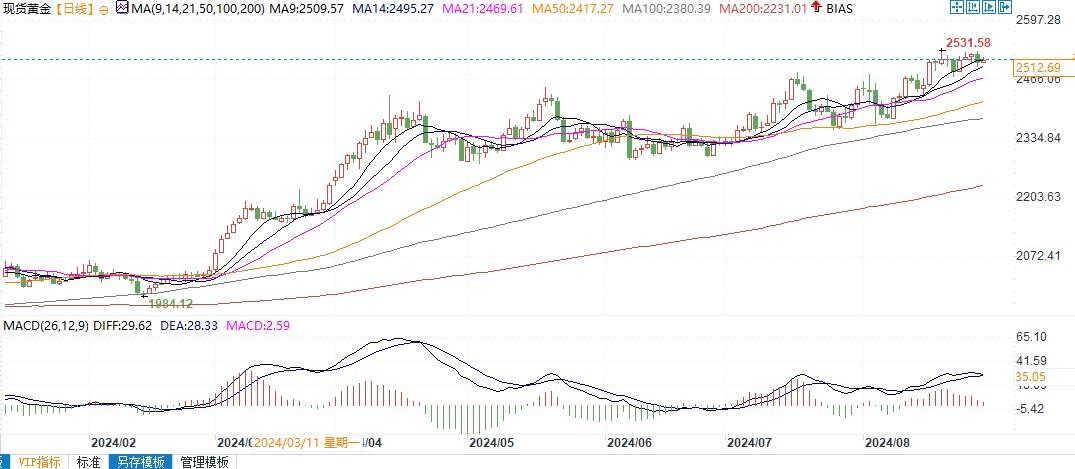What impact will the approaching US election day have on the credit market and gold?
A Reuters/Ipsos survey from August 23-25 showed that 43% of registered voters tend to support former Republican President Trump's economic and employment policies, while 40% agree with Harris. This gap has decreased from 11 percentage points in July. Given that the margin of error in the survey is 4 percentage points, a difference of 3 percentage points is not sufficient to explain the issue. This survey collected responses from 1028 adults across the United States online, including 902 registered voters.
In the fight against crime and corruption, the two are tied with 40% support each, and Harris is still 5 percentage points behind Trump in the July survey, indicating that more people are turning to support Harris. On the issue of extremism, Harris surpassed Trump's 36% with a support rate of 42%. Trump has an advantage in immigration policy, with 45% of voters choosing to support him, while Harris' support is only 37%.
Neither candidate received widespread support, with 59% of voters expressing a negative view of Trump and 52% of voters holding this view of Harris. 47% of voters favor Harris, while Trump's approval rating is 39%.
UBS stated that the outcome of the US presidential election may only affect the credit market at the micro level rather than the macro level.
If we take history as a lesson, credit will benefit in the weeks leading up to the election. UBS's analysis of credit spread data since 1920 shows that investment grade credit spreads tend to tighten in the three months leading up to elections. More importantly, according to UBS data, Democratic victories are usually more favorable for credit spreads than Republican victories.
UBS strategists suggest that the election results should have a relatively small impact on speculative stocks, but if Harris wins, the impact on energy, automotive, and aerospace/defense stocks will be even more negative.
The World Gold Council stated that gold may benefit more from uncertainty than any political leanings, and Harris' running mate (Vice President) confirmed that it could further stir up the situation. After the election, the level of national debt and deficit may continue to raise concerns among investors and keep interest in gold high.
However, historically, elections have not had a significant or direct impact on the performance of gold, but regardless of which candidate wins, recent geopolitical risks remain high and may become a catalyst for gold.
Regarding the impact of the US presidential election on gold prices, compared to the long-term average, gold's performance before and after the election is slightly lower than the long-term average, although not statistically significant. In the six months following the inauguration of Trump and Biden, the return on gold was approximately -2.6% and -6.4%, respectively.
Although on average, gold has not responded to the results of past elections, the outcome of this year's US elections may have a more significant impact on investor sentiment. The continued uncertainty related to elections and the rising geopolitical threats will increase volatility and may affect a wider range of macro variables. Conversely, this may prompt investors to evaluate how to reduce the risk in their investment portfolio and attract them to turn to safe haven assets such as gold.

Daily chart of spot gold
Tips:This page came from Internet, which is not standing for FXCUE opinions of this website.
Statement:Contact us if the content violates the law or your rights
